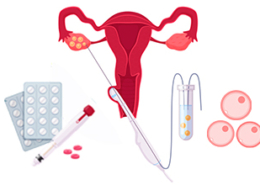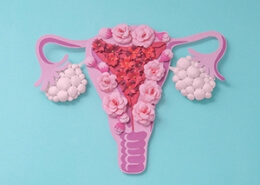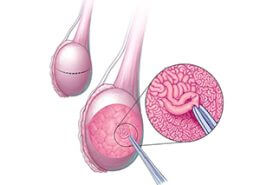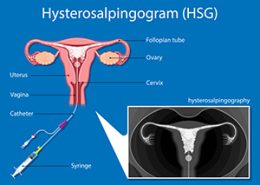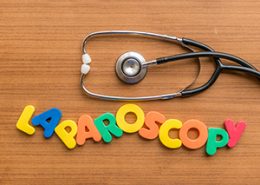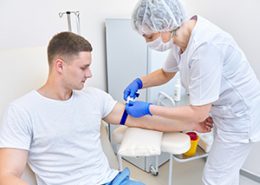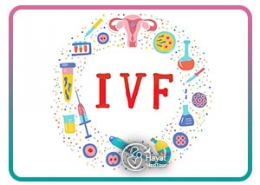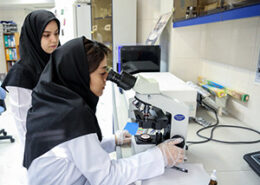How to increase sperm quality?
About one-third of infertility cases are caused by a problem in a man, and the other third occurs due to a combination of male and female problems. Sperm problems are one of the main causes of infertility in men. Therefore, it is very important to ensure the health and quality of sperm before attempting to conceive. Men with poor sperm count; are often unable to conceive their spouse and inevitably have to use infertility treatment methods such as IVF, ICSI, etc.
Paying attention to increasing sperm quality strategy and lifestyle improvements can help increase male fertility. So that in most cases, by following these strategies, men will be able to fertilize their wives naturally. In cases where treatment is needed, paying attention to these strategies increases the chances of successful treatment.
Ways to boost sperm quality and increase fertility in men

Sperm health is one of the factors affecting male fertility. Sperm count, motility, and natural shape are the most important criteria for determining sperm health. Low sperm count, low motility, and abnormal shape can cause infertility problems. Paying attention to some strategies and choosing a healthy lifestyle can help strengthen sperm and increase its quality. In the following, we will introduce some ways to increase fertility in men and strengthen sperm.
Having a healthy diet for boosting sperm quality
Just as the body needs a proper and nutritious diet for its growth and health, the health and quality of sperm also depend on a healthy diet. Studies show that men who eat more fish, poultry, vegetables, fruits, and whole grains in their diet have better quality sperm than men who eat red meat, processed products, sweets, and fast foods. Therefore, men with weak sperm are advised to modify their diet as a first step. Some useful foods to strengthen sperm are:
- Vitamin B12: Vitamin B12 plays an important role in sperm production. The deficiency of this vitamin weakens and reduces sperm count. Getting enough vitamin B12 can protect sperm from inflammation and free radicals and increase sperm count and motility. This vitamin is found in cabbage, liver, milk, eggs, fish, and poultry.
- Vitamin C: Vitamin C is a powerful antioxidant. The deficiency of vitamin C in men can cause structural defects in sperm. These defects can be transmitted to the embryo and neonate. Research shows that eating foods rich in vitamin C help increase the number of active and healthy sperm. Citrus fruits, strawberries, kiwis, broccoli, bell peppers, and tomatoes are rich sources of vitamin C.
- Vitamin D: Vitamin D is essential for the formation of the sperm nucleus. This vitamin helps maintain sperm quality and increase its number. In men who are deficient in vitamin D, the rate of motility and the number of quality sperm are less than normal. Vitamin D is found in fortified dairy products, fatty fish such as salmon and cod liver oil.

- Vitamin E: Vitamin E is an antioxidant that plays an important role in maintaining sperm membrane health. Research shows that taking enough vitamin E increases the ability of sperm to penetrate the egg and increases the chance of successful IVF. Almonds, peanuts, hazelnuts, sunflower seeds, kiwi, tomatoes, mustard, whole wheat, and olives are all rich sources of vitamin E.
- Selenium: Selenium helps sperm to fight free radicals. In addition, selenium plays an important role in the motility of sperm and increasing their quality. Wheat bran, nuts (walnuts, almonds, hazelnuts, etc.), whole grains, sunflower seeds, fish, and sesame are rich sources of selenium.
- Zinc: Zinc is essential for the formation of the outer membrane of sperm and its tail. In addition, zinc protects sperm DNA from damage and prevents sperm defects. Zinc is found in fish, red meat, poultry, wheat germ, and pumpkin seeds.
- Coenzyme Q10: Coenzyme Q10 (Co Q10) is an antioxidant that can significantly enhance sperm quality. Peanuts, pistachios, soybeans, walnuts, hazelnuts, apples, broccoli, carrots, corn, flaxseed, barley, potatoes, and salmon are all good sources of coenzyme Q10.
In addition to consuming the above foods, it is recommended to replace unsaturated fats with saturated fats and trans-fatty acids in the diet. Unsaturated fats such as omega-3 and omega-6 are vital for the growth of sperm membranes and also help increase sperm count. To learn more about the best supplements for boosting sperm quality and improving male fertility, you can read this: best fertility supplements for men.
To have quality sperm, it is better to avoid soy, processed foods, canned foods, and packaged foods. Soy contains phytoestrogens, which disrupt testosterone binding and reduce sperm production. Processed foods also contain synthetic estrogen, which binds to estrogen receptors in the body and affects male fertility. Learn more about healthy eating before having a baby: Proper foods before pregnancy
Regular exercise for increasing sperm quality

Overweight and obesity negatively affect male fertility power and increase testosterone levels. High levels of testosterone reduce libido in men and weaken sperm. Exercise and weight loss can greatly help boost sperm and fertility in men. In addition, exercise triggers the release of the hormone endorphins and increases blood flow, which can increase sexual desire in men.
Performing light aerobic exercises such as walking and swimming is one of the effective ways to boost male fertility and improve sperm quality. Scientific studies show that regular exercise increases the number and motility of sperm and helps to improve the abnormal shape of sperm.
It should be noted, however, that strenuous physical activity, especially cycling, running, and mountaineering, can cause hormonal changes and reduce sperm quality. Therefore, it is recommended that light aerobic exercise replace heavy exercise to improve sperm quality.
Wear suitable underwear
The testicles are sensitive to rising temperatures and should be kept below body temperature. Increased testicular temperature can affect sperm production and maturation. Therefore, it is recommended that men’s underwear be loose and avoid wearing tight underwear. Research shows that men who wear loose underwear produce more and better quality sperm than men who wear tight underwear.
In addition, men who work in hot environments such as laundry, bakery, etc., or work in a sitting position for a long time, are exposed to an increase in testicular temperature, which affects the quality of sperm. Placing a laptop on the abdomen or legs also raises the temperature of the testicles and poses a threat to sperm health.
Avoid smoking and drinking alcohol
Research shows that long-term consumption of alcohol and cigarettes reduces the number and motility of sperm and leads to sexual dysfunction in men. Therefore, men who seek to increase fertility are advised to avoid smoking and alcohol. (Read more about the effect of smoking on fertility: How smoking affects female and male fertility)
Avoid caffeine consumption
Studies of 20,000 men show that caffeine in soft drinks can damage sperm DNA and reduce sperm count. Therefore, it is recommended not to consume more than three cups of caffeinated beverages per day (such as coffee, tea, energy drinks, and soft drinks).
Stop taking some medications
Some drugs can reduce the production of healthy sperm. Sperm quality and health usually return to normal after stopping these drugs. Therefore, men who want to boost their sperm are advised to be careful in taking medications. Drugs that may temporarily reduce the production and growth of healthy sperm include:
- Some antibiotics
- Anti-inflammatory
- Anti-androgens
- Antipsychotic drugs
- Corticosteroids
- Anaerobic steroids (may affect sperm count for up to one year after stopping the drug)
- Exogenous testosterone
- Methadone
- Antidepressants
Avoid exposure to chemicals and toxins
Some chemicals interfere with the production of certain hormones in the body and thus hurt the health of the reproductive system. These chemicals and contaminants can be present in the workplace, in the air, and even in some personal care products. Scientific research shows that men who are exposed to chemicals and toxins produce fewer sperm and lower sperm quality. Therefore, it is recommended that men avoid exposure to contaminants and toxins as much as possible.
Some of the chemicals that interfere with the production of hormones are:
- Mercury vapor
- Lead
- Styrene
- Acetone
Most of these chemicals are found in industrial factories. But some of them are also found in soaps, detergents, and plastic containers. Therefore, when buying these products, you should pay attention to their ingredients and avoid buying products that contain these chemicals.
The effect of increasing sperm quality on the success of infertility treatments

To have a healthy pregnancy, in addition to observing strategies to improve egg quality, sperm boost methods should also be considered. Sperm quality enhancement strategies not only help couples who intend to have a normal pregnancy but also increase the likelihood of success of infertility treatments such as IUI, IVF, ICSI, etc. in infertile couples. The use of quality sperm in infertility treatment methods increases the chances of developing a healthy embryo and reduces the risk of miscarriage during pregnancy.
If you have questions about your sperm test results or concerns regarding fertility, you can submit your reports for an online male fertility consultation. Receive personalized advice and treatment recommendations from our experienced specialists.

